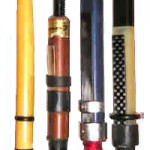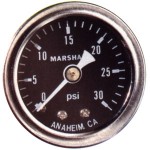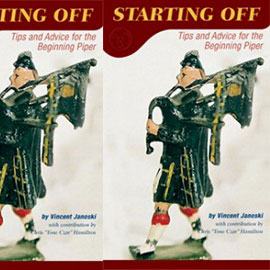3 Modern Conveniences that are Killing the Bagpiper
 Pipehacker loves gadgets. Whatever the latest modern invention or convenience there is for the piper, bring it. Although, lately the idea of convenience is losing its luster. Isn’t “convenience” supposed to mean “easier” or “simpler?”
Pipehacker loves gadgets. Whatever the latest modern invention or convenience there is for the piper, bring it. Although, lately the idea of convenience is losing its luster. Isn’t “convenience” supposed to mean “easier” or “simpler?”
The title of the post could also be “Essential Skills Every Bagpiper Should Have” but the more you think about it, the more damage the supposed conveniences are doing to the bagpiper’s skill set becomes apparent. The impact of many modern conveniences for the bagpiper on bagpiping over the last twenty years or so is undeniable. But at the risk of sounding like the old man screaming at the kids to get off his lawn: Is the convenience of all these gadgets and synthetics really a convenience at all if they kill the skills necessary to be a competent bagpiper? It’s like eating delicious fried bacon every day of your life only to realize that you’re dropping dead of a heart attack at age 40.
Synthetic Bags
Once upon a time, all a piper needed was some stitched hide and a can of seasoning. Today, modern pipers buy a bag made of synthetic fiber or sealed hide with a zipper and rubber collars. Oh, and don’t forget the fancy moisture control attachments (which come in six parts at a minimum) that are then a must. All that equipment just provides more opportunities for things to wear out and fail. More hoses must be bought, more plastic parts replaced. The zipper and collars are just more points for possible leakage. Surely, there are plenty of pipers who get excellent sound with both types of setup: hide/seasoning; zipper/moisture control. But if you can get just as excellent a sound using a simpler approach, why wouldn’t you do it? Not to mention the fact that all these bag conveniences are turning pipers into wimpy sissymarys. Tie in one hide bag and you’ve done your bicep curls for the month. Play a sheepskin bag on your pipe and you will be forced to play it constantly keeping it, and you, in top shape. A synthetic or zipper bag will certainly allow you to pick your pipes up at any time and have them sounding pretty good right away. (Count me as being one who loves that fact.) But it breeds laziness, affecting your skills at blowing good tone on a bagpipe. No skill is probably more important, and more damaging to *not* have. Play an unforgiving sheepskin and you will be forced to build the strength and stamina needed to eliminate whatever blowing issues you have.
Synthetic Drone Reeds
Since Mark Wygent’s original synthetic drone reed design emerged from the primordial soup of Pennsylvania in the 1990s, evolution of the synthetic drone reed has literally exploded in variety and style. New reeds are developed by enterprising pipe-hackers all the time but in the midst of all this is the single style of reed that rules over all—the simple cane drone reed.
Cane drone reeds are indeed fickle beasts but mastering their use is a skill that makes you a better piper. These “little machines” we put into our drones now require a great many more skills to master to use them right. I will bet there are more pipers using these reeds improperly set than there are those who get a great sound with them—and there are those who get a great sound with them for sure! Again, the reeds breed a certain laziness that kills the piper’s instincts and ruins their skill set. Unless you are familiar with the feel and sound of a perfectly set up set of cane drone reeds, you will never know what you are shooting for with the synthetics. Unless you have endured the trials and tribulations to set up a set of cane drone reeds, you will never have the total skills needed to get that sound with the synthetics.
Drone valves
What is there to say about these? Instead of building the skills to blow and control my instrument properly, select and set up my reeds so they are balanced and calibrated, examine and fix the airtightness of my bagpipe, I am going to stick valves in my drone stocks because I can’t stop my drones cleanly when I stop playing. Huh? Far from making things easier, these little gizmos require an almost complete refit of your instrument set up to work properly making it less than amenable to any changes.
-
Tim Burke
-
capt twining
 Pipehacker
Pipehacker







